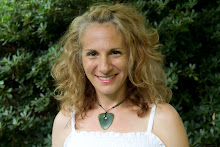What if we didn’t call religion, religion. What if we called it chopped liver instead? I am a vegetarian. I don’t even eat real chopped liver. I make a faux chopped liver from green beans and walnuts. Still, chopped liver means a great deal to the genetic information inside me. My grandmother apparently made an awesome chopped liver before she adopted a “heart smart” diet. I was already young enough not to remember it. In the homes of American Jews of European family history, chopped liver is a staple dish at gatherings. It’s not pretty to look at nor does its high cholesterol and fat content make our mouths water. Still it’s always there and, by the way, it always gets eaten.
I want to write about my transition out of the rabbinate and into civilian life. I learned a great deal as a rabbi. I really loved the work I did. The best part was the amount of time I spent with people, lots of people, lots of different kinds of people. Remember the Doors’ song, “People are strange”? We are. We are very strange creatures on the planet. We do odd things…often in the name of religion.
Religious wisdom is ultimately universal and therefore shared among all people of many different sorts of faith. Religious practice is a tool, one among many, for creating meaning in the passing of time and reaffirming our commitment to the values we consider important.
Unfortunately as soon as the word, religion, is uttered most of us either accept religion as a act of faith or reject religion as a collection of superstitions and hypocrisies. And among us, on both sides of the equation, are folks emphatically committed to their points of view. It’s hard to talk seriously and intelligently about religion in such a polarized environment.
So what if, instead of talking about religion, we talk about chopped liver? It’s ugly. It’s fattening. It’s also nourishing, rich in protein. It’s comfort food, inviting fond memories of aunts and uncles and grandparents of a generation slipping into the past.
There are shared truths in our experiences as human beings, figuring out how to live our lives, pursue our dreams, and heal our injuries, that are ugly and uncomfortable. We indulge in too much and too little confidence. We also all experience fleeting moments that remind us that people are generally kind and concerned for one another, and life is filled with moments for which we are truly grateful. These fleeting occurrences become memories that inform the way we think and feel about ourselves, our loved ones, strangers, and life.

No comments:
Post a Comment